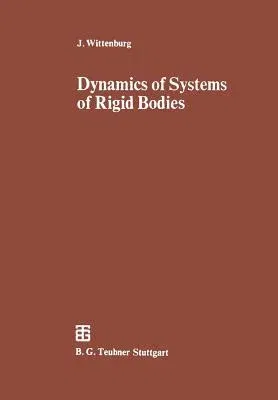Jens Wittenburg
(Author)Dynamics of Systems of Rigid Bodies (Softcover Reprint of the Original 1st 1977)Paperback - Softcover Reprint of the Original 1st 1977, 27 May 2012

Qty
1
Turbo
Ships in 2 - 3 days
In Stock
Free Delivery
Cash on Delivery
15 Days
Free Returns
Secure Checkout
Part of Series
Leitfäden Der Angewandten Mathematik Und Mechanik
Part of Series
Leitfaden Der Angewandten Mathematik Und Mechanik
Print Length
224 pages
Language
German
Publisher
Vieweg+teubner Verlag
Date Published
27 May 2012
ISBN-10
3322909433
ISBN-13
9783322909435
Description
Product Details
Author:
Book Edition:
Softcover Reprint of the Original 1st 1977
Book Format:
Paperback
Country of Origin:
NL
Date Published:
27 May 2012
Dimensions:
24.41 x
16.99 x
1.22 cm
ISBN-10:
3322909433
ISBN-13:
9783322909435
Language:
German
Location:
Wiesbaden
Pages:
224
Publisher:
Series:
Weight:
367.41 gm

